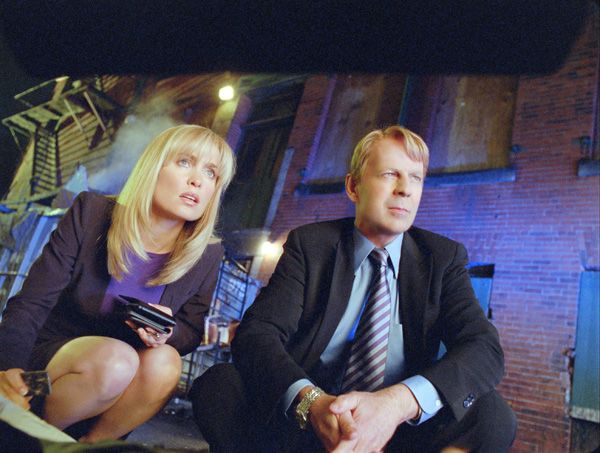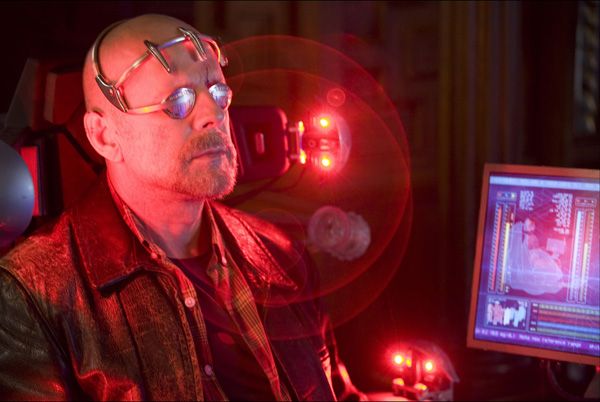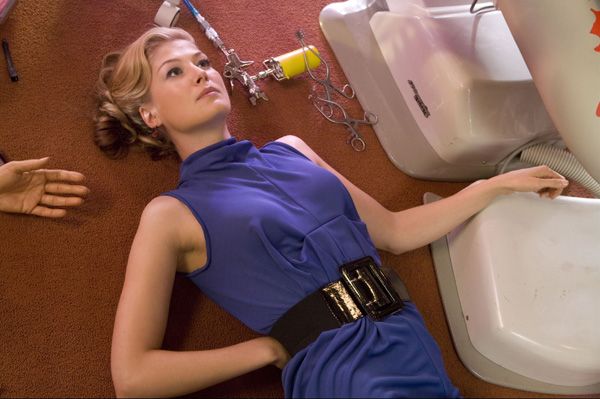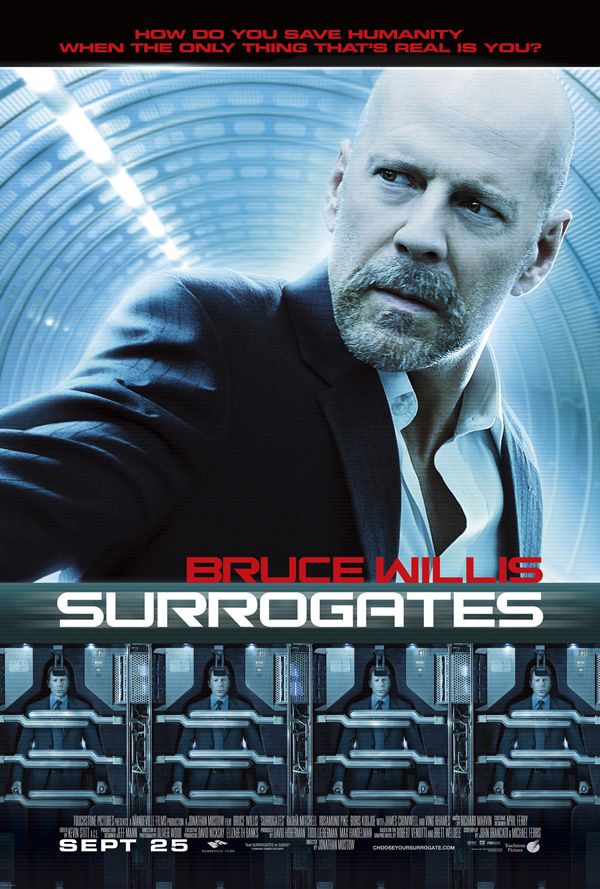A few weeks ago I was invited - along with a few other journalists - to the editing room of director Jonathan Mostow's "Surrogates". While there we were shown a little bit of footage from the September 25th release and we were also able to ask Jonathan Mostow some questions. My report and the Q and A after the jump:
Before going any further, I suggest watching this trailer and/or this featurette. While I could explain everything about the world of "Surrogates", I think getting to see it is always the way to go.
But the quick summary is..."Surrogates" stars Bruce Willis, Radha Mitchell and Rosamund Pike and it's set in a future where most people don't leave their homes. Instead, 98% of people live vicariously through their surrogates as they send them out to interact and work while they're plugged in (kind of like "The Matrix"). But when a murder happens to someone while using their surrogate, Bruce Willis is forced to unplug and figure out what happened.
Anyway, in the editing room we were shown the opening of the movie (which explains the world of "Surrogates"), an action scene with Bruce Willis chasing a bad guy, a few smaller scenes that showed some of the characters, and a party scene.
Overall I really liked what I saw and I think the concept is really cool. Also, the movie is using the surrogates as a way to make a comment about our own lives. Think about how many people play "World of Warcraft" or other online games and that's there only interaction with the outside world. Also, more and more of us are moving away from telephone calls and are just using email or IM for communication. While the film isn't making a direct comment on how technology is changing our lives, it's definitely related. And that's the best kind of sci-fi, and one of the reasons I'm excited to see the film.
But for those that don't care about message and just want a good time, we were shown a pretty awesome action scene that showed Bruce Willis chasing a bad guy. Since he was chasing him as a surrogate, he was able to run and jump at incredible speeds. Since Jonathan Mostow directed "Terminator 3: Rise of the Machines", I think one of the reasons he was brought in to direct is to be able to handle the sci-fi and the action.
Anyway, while we watched the footage Jonathan Mostow spoke to us and then we were able to ask him some questions. Here's the Q&A. I also recently interviewed Jonathan and Radha Mitchell and I'll have those video interviews posted later this week. Until then...
Jonathan started by talking to us about the world of "Surrogates"....
Jonathan Mostow: You can essentially stay home in your underwear and never leave the comfort of your own home, not be exposed to disease or any risks like that. Essentially, you experience vicariously everything your surrogate experiences. You're literally living moment to moment and so if your brainwave kind of goes like this, then that's what your surrogate does. It's a complete transparent experience. Consequently there's no murder. The world is this very safe place. Somebody has figured out a way to kill operators back in their stem chairs by transmitting some strange electrical signal to the robot.
So Bruce [Willis] is on this case with his partner. They've been trying to trail this guy who's been operating this device. In this sequence, they've just located where he is and now they're going after him. The police are chasing him, and Bruce is now joining the pursuit.
(We were shown an extended action scene)
So the place that he was chasing was one of the reservations mentioned in the opening titles. There're places where people who don't want to be a part of this technology, which is a small minority of the people, they basically live in this area where no machines are allowed, no robots. They control that area. They're obviously kind of pissed off that the robots were allowed in.
This next sequence is not a big dramatic sequence, but for those who might be familiar with Radha Mitchell who plays Bruce's partner, it's just a little scene so you get to see the two sides of her. This is just a scene where basically her boss tells her to go home, and you'll see what that means in the world of surrogates.
(We were shown a Radha Mitchell scene - we learn about her character)
This next sequence kind of shows what ultimately this movie is which is it's a robot movie about people. It actually has some interesting and very kind of relevant-to-our-current-existence themes in it about what it means to live in this visual age that we all live in. There's a sequence later in the movie where Bruce, who is injured in that sequence we showed you earlier, has been in the hospital. He's left the hospital even though he's suppose to stay in there, and he's left unbeknownst to his wife. He's come home to find that his wife is having a party with some friends. One of the problems Bruce's character has is that his wife loves surrogacy. She's fully embraced it. They sleep in separate bedrooms. Her real self won't come out of her room. She would rather deal with Bruce as a surrogate because her real self...She looks terrific. She feels terrific. She's got some emotional problems and she much prefers to hide behind the surrogate. So this sequence [shows] he's now come home and finds something that he's not too happy about.
(We were shown a party scene where Rosamund Pike has friends over)
So it shows you that this movie is definitely about the action and the goodies in it, but there's a real kind of soul to it. That's the show. The rest costs nine bucks.
Do all the surrogates have extraordinary abilities or is it just the FBI agents?
Mostow: It's referenced in the movie, but FBI agents sort of have the law enforcement package of powers and stuff like that. They're not like terminator robots, but like any piece of high functioning machinery, they can get kind of messed up.
You can get surrogates made to look like anyone else? They're not being modeled after...?
Mostow: Right, no. The opening sequence of the movie they find this crime. This surrogate, who is this gorgeous blonde, turns out to be operated by this disgusting fat guy.
It's like the Internet.
Mostow: It's exactly like the Internet. The interesting thing about the movie is [when] we screened it for audiences; they immediately connect with what the metaphor of the movie is. It's one of these things where there've been a million robot movies, so what was so different about this idea (it's so simple, really) which is all the robot movies that have been done, the robots are autonomous creatures, and we're interacting with them. This is different. You are literally living vicariously through the robot and the robot is doing only what you tell it to do on a moment by moment basis. Like, you get out of your stem chair and the robot freezes. There are scenes in the movie where the robots just shut down in the middle of talking to you because the operator got out of the chair to go get a bagel or something. There's something so simple about it that it resonates with every body's experience right now with however you deal with the Internet whether you use it to shop or go in chat rooms or play Second Life. That was really a pleasant surprise for us that they [got it]. I thought we needed to do something to crystallize the metaphor for this, and people just get it. They love using it to start conversations and let themselves [talk] about what kind of life we're living, and we're all sort of more connected than we've ever been, but we're also sort of more disconnected than we've ever been. That's really what, at the core, this movie is about. That was sort of the idea in the graphic novel when I first read it two years ago, and for whatever changes we made to the story because you adapt to the movie because it has different needs, that fundamental idea of the graphic novel totally comes out in the movie. It's pretty well expressed.
How important is it to balance answering real world questions (i.e., how do people get groceries) with making an entertaining movie?
Mostow: It's interesting because if you've made a good movie, the audience should be asking themselves those questions because they should be in the dream state of the movie. What good movies do is they put you in the dream state, and you're not thinking. You're dreaming, and you're having this sort of linear experience, and your brain isn't going off thinking about these things. If it is, then there's a problem usually with the movie. Now after the movie they can have all those thoughts. That's fine, and that's what the coffee shop is for that people go to after the movie to talk. We wanted to get as many ideas of the movie as possible, and again the movies, at least for me, they're sort of like sharks. They have to keep swimming forward. If they stop swimming forward, then they sink to the bottom and die. In that sort of velocity of storytelling there's a limit as to how many of these goodies you can stick in there. For example, when he comes out of the elevator, there're guys in those phone booth looking things. Those are called "Charging Base." You seem them in various places in the movie. We don't dwell on them. They're just there, but what they are is to be charging devices. We have a lot of little things like that in the movie that are in there, but we don't stop to go, "OK now you need to [charge]." It's never explained. We took the attitude that audiences are smart. The graphic novel, if you've ever looked at it, has a story and then has these interstitial pages where it stops and tells you the history and all these interesting things and what happened and how the Supreme Court changed the law to accommodate for surrogates and all this kind of stuff. Unfortunately, movies can't stop to take those sort of tangents so we put in as much as we could without the story being the primary thing that serves.
Usually when you watch a science fiction or any movie, there's usually the hero and the villain, and you're always rooting for the one, but do you think half the audience is going to come out rooting for half and the other half rooting for the surrogates? Some people, I think, have become so perverted through the Internet that I think the surrogate thing is something they're rooting for.
Mostow: It's an interesting thing. There's no question the audience comes out of this movie rooting for Bruce's character, and Bruce's character is the guy that is essentially in this existential state at the beginning of the movie where he's essentially dissatisfied with his life. He's got a strange relationship with his wife. His job is sort of meaningless because what does he do? There're no more murders. He's essentially investigating property time. If a surrogate is murdered, it's really just a property crime. He doesn't know how to get out of his problem, and ultimately what he realizes that his problem is that he's drowning is all this technology. As his surrogate is destroyed, he has to go out into the real world and operate as a human being in this world of technology. He kind of goes through his own journey of self-discovery and re-finding his purpose in life. So, the audiences root for that, but what the movie gets at is essentially we all have this ambivalent sort of conflicting relationship with technology. I'm a huge gadget freak. I look on CNet literally every day to see what new gizmos are out there. I love technology. I'm constantly e-mailing. I've got the iPhone. I've got all that stuff, and yet on some level, I kind of resent the two because I know how much time it steals from you.
I know that I suddenly find myself returning e-mails as opposed to doing something with my family. I think everyone's got those feelings and nobody really sort of talks about them because they don't really even know how to articulate them; that ambivalence we feel toward technology, and that's what I think the focus groups of this movie have been unlike anything that we've ever seen or any of the studios have ever seen because the movie basically kicks of a conversation exactly about that ambivalence that you feel. Everybody in the audience goes, "God, that's such a great technology. I'd love to have it. What a horrible thing if it actually really existed." That's sort of what the whole thing of the movie is, and it makes people realize, God we're totally reliant on the Internet, on e-mail, on our "crack-berries," but are they really making our lives better on a really fundamental human basis? I'm not concerned about the question you raised cause I think the interest is really clear in the movie, but it gets exactly at the sort of generalized anxiety I think we all feel about technology.
In that clip with the humans and their own society, they look like outcasts. Like there's no Target in their compound... Are humans not allowed to be in the world?
Mostow: Oh no, you're allowed to, but it's just sort of like when Bruce first goes out into the world, he almost has a panic attack. Just walking down the side walk is like an overwhelming experience for him. It's like walking out in the street in the middle of traffic. You've got all these cars going by and it's sort of overwhelming, so most people again choose to stay at home because it's just way more convenient and easy. The choice to live in these reservations is more about a philosophical choice for these people.
They don't look very fashionable or anything.
Mostow: No, I mean, later in the movie he goes back in as his human self and we see that they're not scary people necessarily. They're somewhere between the Birkenstock, whole food shopping, Trader Joe's crowd a little bit, but they're normal people. They just want to have a decent kind of existence.
It's like they're at Burning Man.
Mostow: Yeah, they're certainly that element of people there. They're not all hippie-hippies kind of thing, so it's a bit of a mix. They're farming. They're sort of engaged in the texture of life.
When you make a sci-fi film like this, when you show it in focus groups and test screenings, can you really change that much when it's sci-fi like that when someone says something at you're like, "Oh that was a good idea?"
Mostow: It's irrelevant to sci-fi. I mean, it's funny. A lot of filmmakers hate testing movies. I love it because it's an audience medium. The biggest problem has been the prevalence of all these Internet sites. It's almost impossible to have a test screening without it leaking out on the Internet. We've actually been incredibly lucky that we've not really gotten dinged by that. So, yeah, absolutely. You find out stuff that either isn't clear. A lot of it is you're sitting in the audience and you're hearing, oh the moment fell flat or oh wow, they really liked that moment in way we didn't expect. You're sitting in the back of the theater watching the audience and feeling how it's playing. Yeah, the focus groups are really useful [but] if one person has some crazy thing you can't necessarily always take that. Like there's a group of people who are all either tripping on an idea or something, yeah. Even at a late state, you can do it. I'm recording some ADR today with an actor to clarify a story point that not everybody got, but when it comes out in theaters everybody will get that story point. There're still a lot of tools, even after you finish shooting, there's so many...even the editing is a big deal. Once you lock picture, music, sound mixing, dialog replacement, those are all huge tools and levers that are in the bag of tricks that can still shape how a scene is perceived or how something plays out.


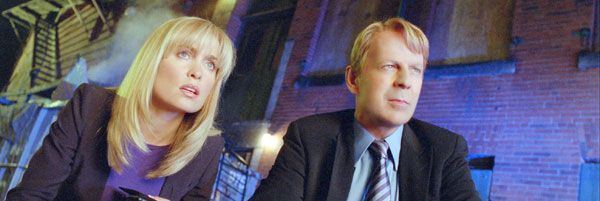
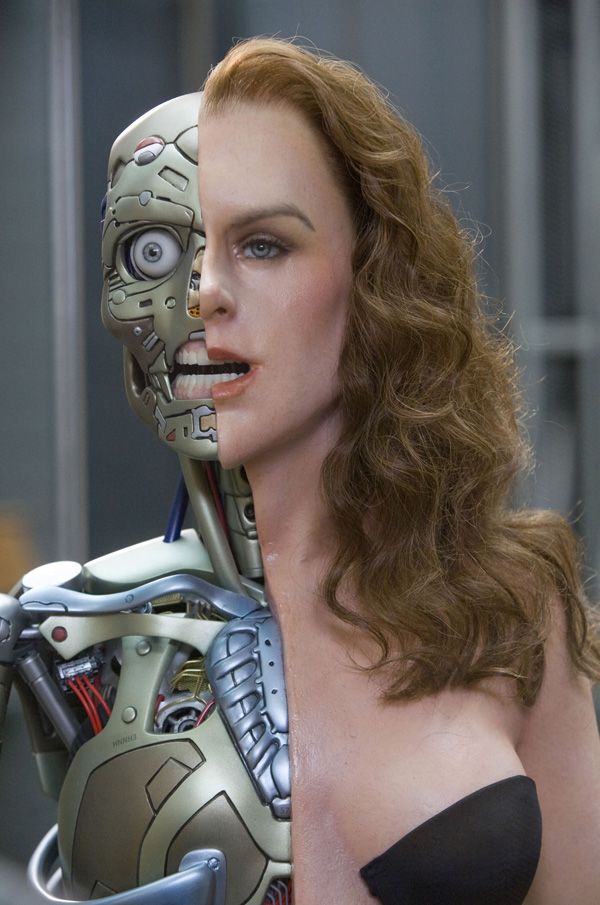
.jpg)
